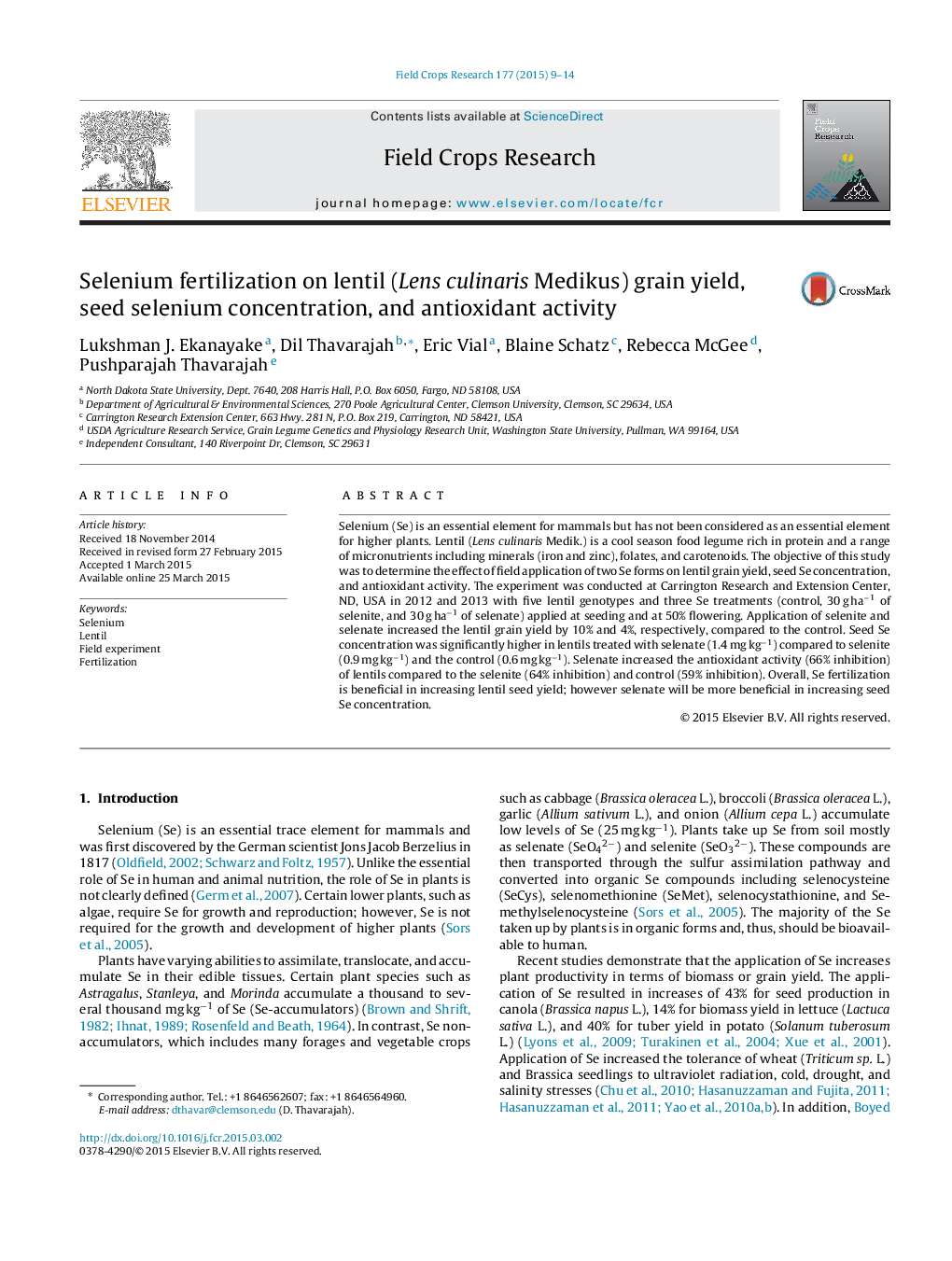| Article ID | Journal | Published Year | Pages | File Type |
|---|---|---|---|---|
| 6374913 | Field Crops Research | 2015 | 6 Pages |
Abstract
Selenium (Se) is an essential element for mammals but has not been considered as an essential element for higher plants. Lentil (Lens culinaris Medik.) is a cool season food legume rich in protein and a range of micronutrients including minerals (iron and zinc), folates, and carotenoids. The objective of this study was to determine the effect of field application of two Se forms on lentil grain yield, seed Se concentration, and antioxidant activity. The experiment was conducted at Carrington Research and Extension Center, ND, USA in 2012 and 2013 with five lentil genotypes and three Se treatments (control, 30 g haâ1 of selenite, and 30 g haâ1 of selenate) applied at seeding and at 50% flowering. Application of selenite and selenate increased the lentil grain yield by 10% and 4%, respectively, compared to the control. Seed Se concentration was significantly higher in lentils treated with selenate (1.4 mg kgâ1) compared to selenite (0.9 mg kgâ1) and the control (0.6 mg kgâ1). Selenate increased the antioxidant activity (66% inhibition) of lentils compared to the selenite (64% inhibition) and control (59% inhibition). Overall, Se fertilization is beneficial in increasing lentil seed yield; however selenate will be more beneficial in increasing seed Se concentration.
Related Topics
Life Sciences
Agricultural and Biological Sciences
Agronomy and Crop Science
Authors
Lukshman J. Ekanayake, Dil Thavarajah, Eric Vial, Blaine Schatz, Rebecca McGee, Pushparajah Thavarajah,
